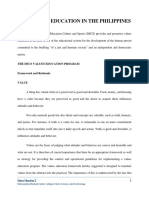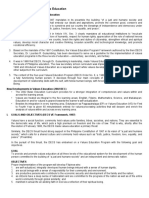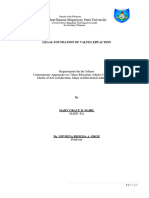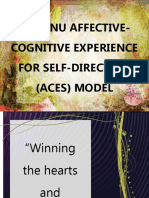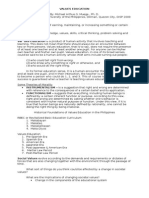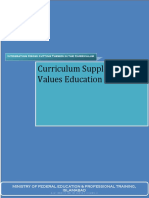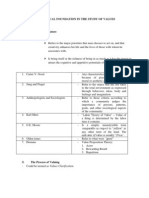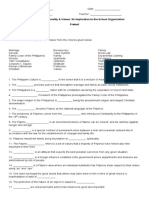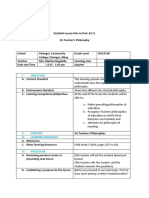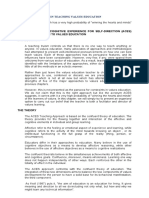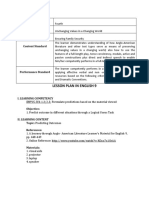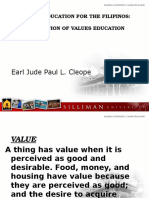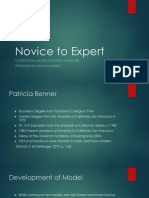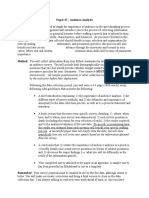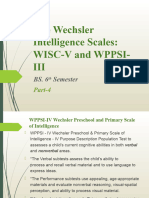100% found this document useful (2 votes)
3K views14 pagesDECS Values Framework
The document outlines the Values Education Program established by the Department of Education, Culture and Sports (DECS) in the Philippines. The program aims to promote values education at all levels of the educational system to develop students as human persons committed to building a just and humane society, and an independent and democratic nation. The values education framework is designed to translate abstract values into practical actions. It is based on the philosophy of developing each human person to their fullest potential physically, intellectually, morally, and spiritually for the benefit of both individuals and society. The core and related values given emphasis in the program are outlined.
Uploaded by
Kevin MirasolCopyright
© © All Rights Reserved
We take content rights seriously. If you suspect this is your content, claim it here.
Available Formats
Download as RTF, PDF, TXT or read online on Scribd
100% found this document useful (2 votes)
3K views14 pagesDECS Values Framework
The document outlines the Values Education Program established by the Department of Education, Culture and Sports (DECS) in the Philippines. The program aims to promote values education at all levels of the educational system to develop students as human persons committed to building a just and humane society, and an independent and democratic nation. The values education framework is designed to translate abstract values into practical actions. It is based on the philosophy of developing each human person to their fullest potential physically, intellectually, morally, and spiritually for the benefit of both individuals and society. The core and related values given emphasis in the program are outlined.
Uploaded by
Kevin MirasolCopyright
© © All Rights Reserved
We take content rights seriously. If you suspect this is your content, claim it here.
Available Formats
Download as RTF, PDF, TXT or read online on Scribd
/ 14


